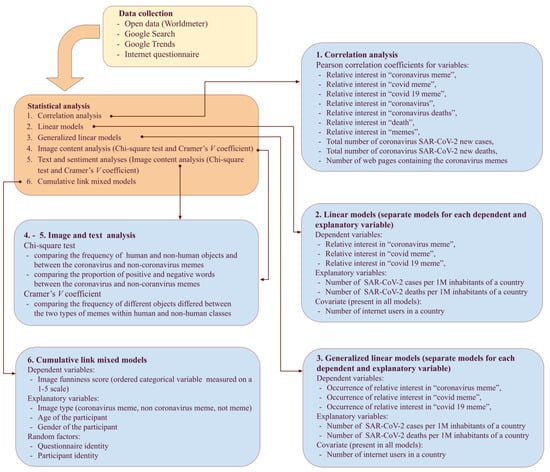How has technological advancement shaped the travel and tourism industry? What roles do software development companies play in improving this sector? What major changes did they bring about that revolutionized the way we travel? These are the thought-provoking questions we seek to address given the notable transformations in the industry.
Several reports show a consistent problem; the travel and tourism industry is not fully harnessing the potential of software solutions. McKinsey forecasts that there will be immense growth in global travel and tourism, yet Sector & Sovereign Research highlights inadequacies in the current systems in absorbing this growth. The proposal to solve this problem lies in the hands of software development companies within the United States, which can tailor solutions to meet these looming gaps.
In this article, you will learn the impact of software development on the travel and tourism industry. The emphasis will be on companies that have greatly contributed to technological transformations within the industry. This includes their innovative software solutions, their impact on industry operations, and their future plans within this sector.
Furthermore, the article will guide you through the important role these companies play, their strategic roadmaps and how they envision the future of tourism and travel. Reading this, you will gain an understanding of not only the current state but also the potential future of the travel industry shaped by software development.

Understanding Definitions: Software Development for Tourism and Travel
Software Development is the process of designing, creating, testing, and maintaining software. This involves writing and coding programmes to fulfill certain functions or solve specific problems.
Tourism and Travel Industry is a broad sector that encompasses various businesses that provide services to tourists. It includes companies involved in transportation (like airlines and cruise companies), accommodation (like hotels and resorts), and other facilities like tour operators and travel agencies.
Companies Shaping the Industry refer to those businesses that are making significant contributions to the advancement of the tourism and travel industry. This includes creating innovative technologies that improve how the industry operates.
Trailblazing Paths: Surprising Innovations in Software Development for the Tourism and Travel Industry
Digital Revolution: Redefining Travel and Tourism
The travel and tourism industry is undergoing a digital revolution, powered by technological advancements in software development. Emergent titans are reshaping this sector through the creation and application of groundbreaking software solutions. These tech-driven companies integrate automation, artificial intelligence, and data analytics, crafting a more personalized, convenient, and captivating experience for travelers.
One significant breakthrough in software development is the utilization of Artificial Intelligence (AI). AI-powered applications such as chatbots and virtual assistants provide real-time assistance, 24/7 customer support, and personalized recommendations based on consumer behavior and historical data. The integration of AI streamlines operations, reduces costs, and enhances the user experience. Furthermore, machine learning algorithms play a crucial role in data analysis, helping companies make data-driven decisions and predict future trends.
Another transformative technology is the Internet of Things (IoT). IoT devices share data among each other, enabling continuous communication and synchronization. For instance, smart hotel rooms adjust settings automatically based on user preferences enhancing guests’ comfort and satisfaction.
Innovative Companies Making Waves
Several forward-thinking companies are leading the way in this digital transformation.
- Booking.com, with its robust digital platform, offers a seamless booking experience to consumers with a wide range of accommodation options.
- Airbnb has redefined the hospitality sector with its peer-to-peer property rental platform that features an easy-to-use interface and secure payment system.
- Amadeus, a world leader in travel technology, delivers an array of solutions like flight management systems, reservation and inventory management tools, and enterprise software for airlines, hotels, and travel agencies.
These companies are not merely following the trend; they are actively shaping the future of the industry through their unique software developments. Armed with these innovative tools, they can anticipate customer needs, streamline their processes, and offer a more satisfying and engaging travel experience.
Despite being an incredibly competitive industry, travel and tourism provide ample room for innovation. Incorporating cutting-edge technologies into a business model can dramatically improve the efficiency of operations, create unprecedented levels of customer satisfaction, and ultimately, fuel growth. The companies that embrace this digital revolution will be the ones to leave an indelible mark on the industry, ushering in a new era of travel and tourism.
A New Perspective on Navigation
What if the tourism industry could be revolutionized through technology? The idea may seem far-fetched, but it is a reality. Numerous software development companies are devoted to propelling the tourism industry to new heights by improving the capabilities of information technology through innovative programs and applications. They recognize the need in today’s world for quick, accurate, and secure digital platforms where both tourists and investors can navigate with ease. Their ambition is not just to improve existing systems, but to create a technological revolution that will redefine the norms of travel and tourism.
Overcoming the Digitalization Challenge
Despite the promise of technology, the tourism industry remains fraught with challenges that hinder its full potential from being tapped. The central issues involve security, convenience, and accessibility. While many platforms exist, not all are equipped with the security features necessary to ensure safe transactions and secure the details of its users. As for convenience, not all systems provide efficient and swift handling of information, often resulting in slow response times and delayed services. In terms of accessibility, the lack of user-friendly interfaces and the exclusion of various group demographics creating a significant obstacle. These challenges highlight the need for a new breed of software developed by companies that understand these issues and have the competence to provide solutions.
Trailblazing Innovations that Reshape the Industry
Several pioneering software development companies have broken the barriers and set the standard for future innovations in tourism technology. First among them is Adventure Bucket List, which has created a reservation software that hosts hundreds of recreational companies in one platform. This software has changed the game by making it easier for tourists to find and book experiences, while business owners get the much-needed exposure without having to create their own online presence. Another industry leader is Peek Pro, which has created a booking software that allows tour operators to manage reservations, track sales, and simplify operations in one user-friendly platform. Finally, there’s TripWorks, a newcomer software that brings innovation to the sector by integrating calendar, emails, analytics, and invoicing in an all-in-one travel management software. These companies prove that when technology is at its best, the tourism industry can reach new dimensions in terms of convenience, security, and accessibility.
Empowering Journeys: How Software Development is Revolutionizing the User Experience in Travel and Tourism Industry
Revolutionising Travel Through Progressive Software Development
Is software development transforming the future of tourism and travel? Absolutely. The digital revolution has significantly shifted the dynamics in the travel and tourism sector. The digital wave keeps the industry in constant evolution, reshaping traditional systems to accommodate trends and developments in the tech world. The significant influence of progressive software development in this sector is undeniable.
The recent growth of travel and tourism software development underscores the need for innovation to meet evolving customer demands. Enterprises seek software solutions that effectively run their operations, improve customer engagement, and streamline service delivery while ensuring a sustainable and efficient business model. This need is rooted in several intricate challenges facing the industry.
Software Development: Solving tourism’s digital problems
The recurring problem in the sector is the lack of effective systems to manage the complexities of travel operations and meet growing customer expectations. The fragmented nature of the industry also necessitates robust, flexible systems that integrate all sectors such as transport providers, hotels, vehicle rentals, tour operators, and others for efficient operations. Furthermore, the influx of a tech-savvy generation of travelers has raised the demand for digital services for seamless travel planning and booking.
To mitigate these issues, the industry is embracing software development to digitally transform its operations. Travel companies are progressively integrating advanced technologies like artificial intelligence (AI), data analytics, machine learning, blockchain technology, and more into their operations to enhance decision-making, improve operating efficiency and customer experience.
Software Development Success Stories in the Travel Sector
Several travel companies have vaulted to industry leadership positions via progressive software development. Online platforms like Airbnb and Booking.com provide exemplary use of software development. Airbnb leverages technology to connect people looking for accommodation with homeowners who want to rent their spaces. The platform provides a seamless, user-friendly experience, allowing users to quickly find suitable accommodation and make bookings with ease.
Another success story is Booking.com, which leverages advanced algorithms to provide personalized recommendations to its users. The personalization aspect drives user engagement and retention, giving them a competitive edge. Custom software solutions have played a huge role in revolutionizing the customer experiences in these companies, portraying the significant influence of progressive software development in the travel and tourism industry.
Conclusion
How are these advancements in tourism and travel software reshaping not only our vacationing methods, but also our interactions and understanding of the world? It’s undeniably true that software development has revolutionized the tourism and travel industry with innovations that have made it more accessible, efficient, and enjoyable. With the advent of virtual reality, blockchain technology, artificial intelligence, and digital booking platforms, the scope of travel has been expanded significantly, presenting an opportunity for a completely different and enriching travel experience.
We encourage you to stay connected with our blog posts and take part in our online community, as we continue to engage with and delve deeper into this exciting topic. We guarantee that with each post, you will not only be updated on the latest developments and trends in the tourism and travel industry, but you’ll also gain insightful knowledge that will make your travel experiences even more fulfilling and enjoyable.
No doubt, companies leading the charge in software development for tourism and travel show no signs of slowing down. We eagerly anticipate what the future holds in this dynamic intersection of technology and tourism. As global technologies continue to evolve and more companies enter this arena, we look forward to bringing you the most thrilling discoveries, remarkable innovations, and transformative trends shaping the industry. Stay with us as there’s so much more to uncover and explore. The voyage has only just begun!
F.A.Q.
1. What kind of software do travel and tourism companies generally use?
Travel and tourism companies typically use bespoke systems tailored to their specific needs. This can range from reservation systems, customer relationship management software, travel agency software, and more for managing bookings, cancellations, customer inquiries, and other operations.
2. How does software development impact the travel and tourism industry?
Software development is transforming the travel and tourism industry by offering innovative solutions for better customer service, efficient operations, and advanced analytics. It also aids in the expansion of online presence and digital marketing for these companies, making information more accessible to consumers.
3. Which companies are leading in terms of providing software solutions to the travel and tourism industry?
Several global tech companies, including Amadeus, Sabre, and Travelport, are leading the market in delivering advanced software solutions to the travel and tourism industry. They offer a variety of solutions, such as reservation systems, operational software, data analysis tools, and customer interaction platforms.
4. What are the main features of software developed for travel and tourism companies?
Software developed for the travel and tourism sector usually includes features like online booking functionality, itinerary creation tools, analytics, customer relationship management, and payment gateways. They also aim to provide seamless integration with other systems and user-friendly interfaces to ensure a smooth user experience.
5. How does the application of software in tourism and travel help the customers?
The use of software in tourism and travel enhances the customer experience by simplifying the booking process, offering personalized recommendations, and providing real-time updates and alerts. Furthermore, it offers the convenience of managing travel plans from anywhere, at any time, computerizing most of the process for ease and efficiency.


